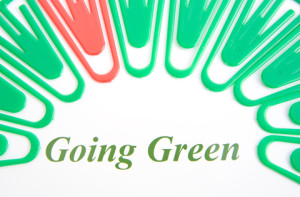 Although most people are now aware of looming environmental threats such as global warming, pollution, waste, deforestation, habitat loss, and so on, and many are keen to find ways to reduce their carbon footprint and adopt a greener lifestyle, the truth is that many balk at the prospect of paying more for eco-friendly goods and services, especially in a recession. And while the prices on many products have come down thanks to increased demand and subsequent supply, it cannot be denied that going green can cost a pretty penny. On the other hand, there are plenty of ways that green living can also help the average household to cut back on common expenses, especially in the long-term. So will you spend or save more when you decide to take on an environmentally-friendly lifestyle? Here are a few considerations that could help you to find an answer.
Although most people are now aware of looming environmental threats such as global warming, pollution, waste, deforestation, habitat loss, and so on, and many are keen to find ways to reduce their carbon footprint and adopt a greener lifestyle, the truth is that many balk at the prospect of paying more for eco-friendly goods and services, especially in a recession. And while the prices on many products have come down thanks to increased demand and subsequent supply, it cannot be denied that going green can cost a pretty penny. On the other hand, there are plenty of ways that green living can also help the average household to cut back on common expenses, especially in the long-term. So will you spend or save more when you decide to take on an environmentally-friendly lifestyle? Here are a few considerations that could help you to find an answer.
The first thing to consider is how far you want to go with your plans to greenify. You might be surprised to learn that there are several ways you can make your lifestyle more eco-friendly without spending a dime. For example, recycling usually costs you nothing. While you might have to drive your bags of plastic and aluminum down to your local recycling center, the money you make in the process could actually cover the cost of gas (and then some) depending on the amount of recycling you bring. You can also start an organic fruit and veggie garden in the backyard to supply your table with fresh and non-toxic produce. Sure you’ll have to buy the seeds, but they’ll cost you a lot less than purchasing your produce at the market. The point is there are ways to go green that require little to no expense and stand to pay off, even if only in small ways.
Of course, you can take much larger steps. While they may cost you more initially, most stand to show major savings over time. Electric cars, while pricy, tend to have an equivalent charging cost to fuel-burning vehicles that averages out to less than a dollar a gallon. And you might spend $20,000 up front to install solar panels, but when you no longer have an electric bill each month you could quickly see your costs recouped (especially if you create excess energy that you can sell back to the power company). You could even purchase a LEED certified property. Yes, it will almost certainly cost you more than a traditional home, all things being equal. But considering how much you’ll save on utility bills all around thanks to alternative energy, water conservation, and so on, your house will soon be well worth the initial added expense.
So do you stand to spend a lot by going green? Perhaps. But you might also end up seeing significant savings over time. If you’re willing to be patient, adopting an eco-friendly attitude and putting your money where your mouth is could pay off big time. Plus, humans need to find a common ground, so to speak, with the Earth. If we want to ensure that future generations have a planet to call home, it’s high time we got our act together and started doing our part to clean up the messes we’ve made.
